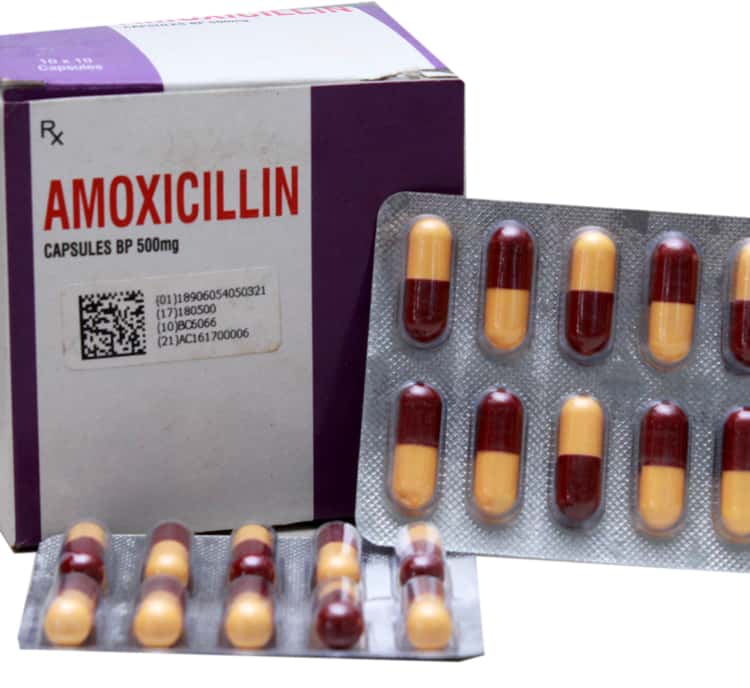Amoxicillin Side Effects: Things to consider before and during the use of Amoxicillin Antibiotic
What are Antibiotics?
Antibiotics include agents like penicillin, tetracycline, erythromycin. Antibiotics are medicines that are used to combat infections caused by bacteria. They are also called antibacterial agents. They treat infections by killing or reducing the growth of bacteria.
How do Antibiotics work against bacteria?
Antibiotics kills bacterial infections either by killing bacteria or slowing and suspending its growth. They do this by:
- Attacking the wall or coating surrounding bacteria
- Interfering with bacteria reproduction
- Blocking protein production in bacteria
Amoxicillin is an antibiotic that is useful for the treatment of a number of bacterial infections. It is the first line treatment for middle ear infections. It can also be used for laryngitis, pneumonia, skin infections and urinary tract infections among others. It is taken by mouth or less often by injection.
It is available in the following forms and strengths, all of which are taken by mouth:
- 250-mg capsule
- 500-mg capsule
- 250-mg chewable tablet
- 50-mg/mL liquid suspension
Special instructions for amoxicillin
Before Taking Amoxicillin,Please Tell Your Doctor if you have:
- Had an allergic reaction to any other penicillin antibiotic.
- If you are taking probenecid or methotrexate, and do not take amoxicillin with these drugs unless your doctor tells you to do so.
- If you’re on Birth control medicines that contain estrogen may not be effective while you are taking amoxicillin. Use a second birth control method for at least 1 month after taking amoxicillin.
- If you are pregnant or breastfeeding.
- If you have kidney disease.
- Allergic reactions, the signs may include: skin itching or rash, swelling of the face, lips, tongue.
- (PKU) phenylketonuria (buildup of dietary phenylalanine to potentially toxic levels).
- If you are on dialysis.
- Any liver disease.
- Hives (urticaria).
Amoxicillin and Alcohol
Taking Antibiotics such as Amoxicillin may cause an upset stomach, and alcohol can make this and other side effects worse.
Contact your doctor if you suffer from these side effects and they are serious or bothersome:
- Abdominal pain (mild)
- Diarrhea (mild)
- Nausea
- Swollen tongue or black “hairy” tongue
- Trouble sleeping
- Vomiting
- Vaginal itching, soreness or discharge (thrush)
- Nose bleed
- Sore throats
- Swollen, lymph nodes
- Tightness in the chest
- Unpleasant breath odor
- Yellow eyes or skin
- Skin rash
- Hairy tongue
Check with your doctor as soon as possible if any of the following side effects occur:
- Anxiety
- Signs of kidney problems (e.g., increased urination at night, decreased urine production, blood in the urine)
- Skin rash, hives, or itching
- Symptoms of liver damage (e.g., yellow skin or eyes, abdominal pain, dark urine, clay-coloured stools, loss of appetite)
Stop taking the medication and seek immediate medical attention if any of the following occur:
– Convulsions (seizures)
– Diarrhea (watery and severe), which may also be bloody
– Symptoms of a serious allergic reaction (e.g., swelling of the face or throat, difficulty breathing, wheezing, or itchy skin rash)
What other drugs could interact with this medication?
There may be an interaction between amoxicillin and any of the following:
- Allopurinol
- BCG vaccine
- Birth control pills
- Fusidic acid
- Methotrexate
- Mycophenolate
- Probenecid
- Sodium picosulfate
- Tetracyclines (e.g., minocycline, doxycycline)
- Typhoid vaccine
- Warfarin (blood thinners)



